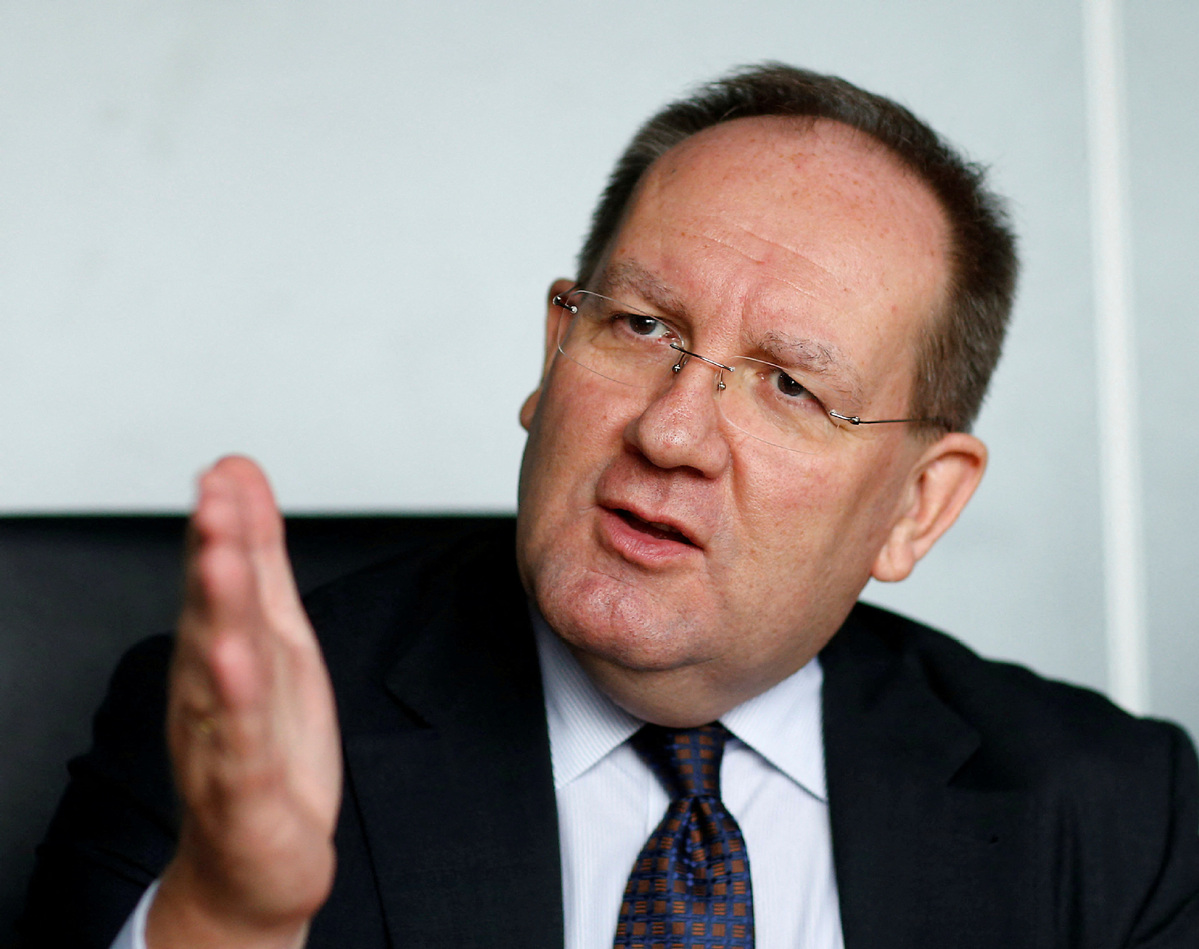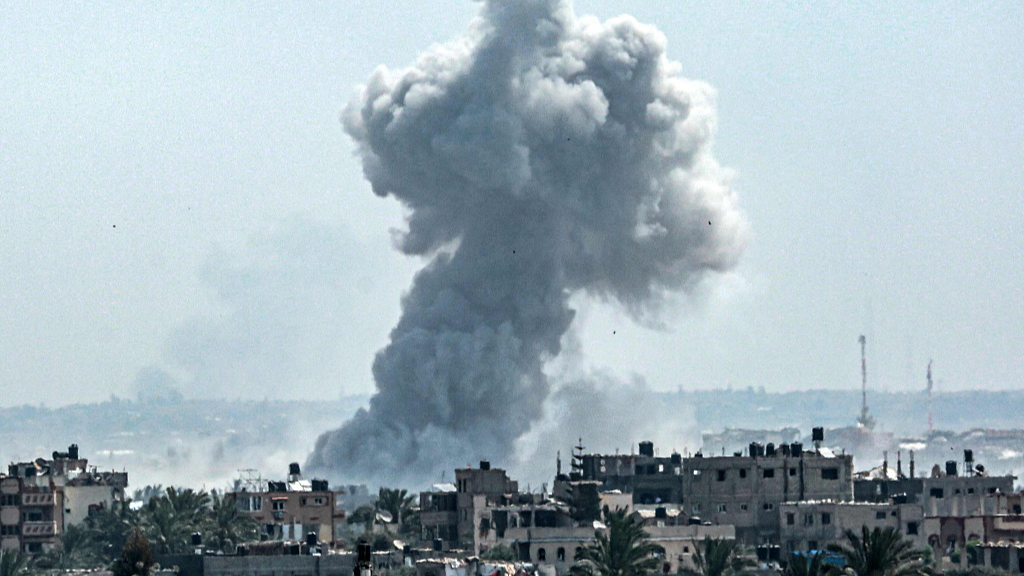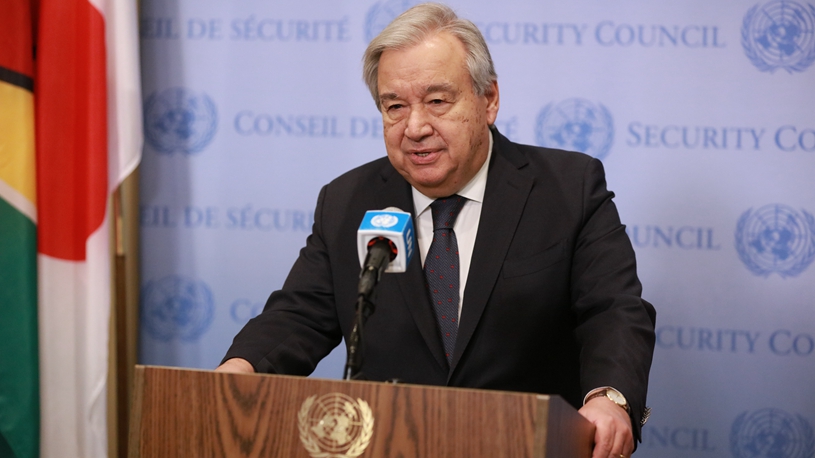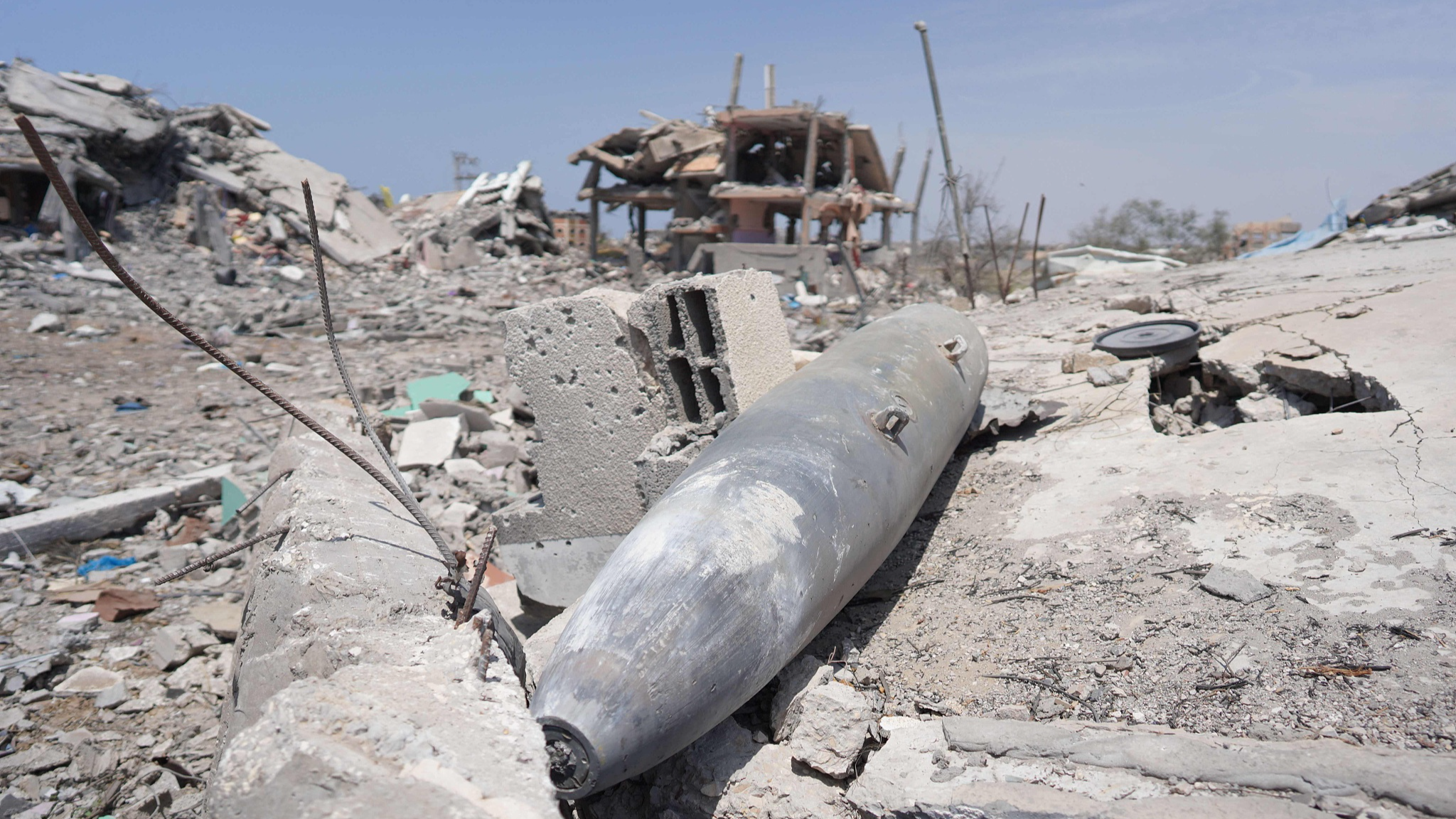UNITED NATIONS, April 30 (Xinhua) — UN Secretary-General Antonio Guterres on Tuesday called for a cease-fire agreement between Israel and Hamas, and for an international investigation of the newly found mass graves in Gaza.
“I have called consistently for a humanitarian cease-fire, the immediate and unconditional release of all hostages, and a massive surge in humanitarian aid. Unfortunately, that has not happened — yet. But negotiations are once again under way,” said Guterres.
“For the sake of the people of Gaza, for the sake of the hostages and their families in Israel, and for the sake of the region and the wider world, I strongly encourage the government of Israel and the Hamas leadership to reach now an agreement,” he told reporters.
Without such an agreement, the war, with all its consequences both in Gaza and across the region, will worsen exponentially, he warned.
He raised the alarm at a possible Israeli offensive on Rafah.
Recent weeks have seen airstrikes in the Rafah area. A military assault on Rafah would be an unbearable escalation, killing thousands more civilians and forcing hundreds of thousands to flee. It would have a devastating impact on Palestinians in Gaza, with serious repercussions on the occupied West Bank, and across the wider region, warned Guterres.
“All members of the Security Council, and many other governments, have clearly expressed their opposition to such an operation. I appeal for all those with influence over Israel to do everything in their power to prevent it,” he said.
More than 1.2 million people are now seeking shelter in Rafah governorate, most of them fleeing the Israeli bombardment that has reportedly killed over 34,000 people. They have very little to eat, hardly any access to medical care, little shelter, and nowhere safe to go, he noted.
Guterres called for an international investigation of the newly found mass graves in Gaza.
“I am deeply alarmed by reports that mass graves have been discovered in several locations in Gaza, including Al Shifa Medical Complex and Nasser Medical Complex. In Nasser alone, over 390 bodies have reportedly been exhumed,” he said.
There are competing narratives around several of these mass graves, including serious allegations that some of those buried had been unlawfully killed, he told reporters. “It is imperative that independent international investigators, with forensic expertise, are allowed immediate access to the sites of these mass graves, to establish the precise circumstances under which hundreds of Palestinians lost their lives and were buried, or reburied.”
The families of the dead and missing have a right to know what happened. And the world has a right to accountability for any violations of international law that may have taken place, he said.
Hospitals, health workers, patients and all civilians must be protected. The human rights of all must be respected, said Guterres.
Guterres also called for more humanitarian assistance in Gaza.
“In northern Gaza, the most vulnerable — from sick children to people with disabilities — are already dying of hunger and disease. We must do everything possible to avert an entirely preventable, human-made famine,” he said. “We have seen incremental progress recently. But much more is urgently needed, including the promised opening of two crossing points between Israel and northern Gaza, so that aid can be brought into Gaza from Ashdod port and Jordan.”
Under international humanitarian law, civilians must be protected and they must be able to receive the essentials they need to survive, including food, shelter, and health care, he noted.
A major obstacle to distributing aid across Gaza is the lack of security for humanitarians and the people in need. Humanitarian convoys, facilities and personnel, and people in need, must not be targets, he said.
Guterres called on the Israeli authorities to allow and facilitate safe, rapid and unimpeded access for humanitarian aid and humanitarian workers throughout Gaza.
He called for support for the UN relief agency for Palestine refugees, UNRWA, saying the agency has an irreplaceable and indispensable role in supporting millions of people in Gaza, the occupied West Bank, Jordan, Syria and Lebanon.
Most countries that had suspended contributions to UNRWA following Israel’s allegations that a dozen UNRWA staff members participated in the Oct. 7 attack on Israel, have resumed their aid. The United Nations is optimistic that other countries will follow suit. But a funding gap remains, he said. “I call on member states, both traditional and new donors, to pledge funds generously to ensure the continuity of the agency’s operations.”
Guterres reaffirmed the world body’s commitment to a two-state solution — the only sustainable path to peace and security for Israelis, Palestinians, and the wider region.
“The United Nations is totally committed to supporting a pathway to peace, based on an end to the (Israeli) occupation and the establishment of a fully independent, democratic, viable, contiguous, and sovereign Palestinian state, with Gaza as an integral part,” he said.
Source(s): Xinhua

 News7 days ago
News7 days ago
 Sports5 days ago
Sports5 days ago
 World6 days ago
World6 days ago
 News4 days ago
News4 days ago
 World7 days ago
World7 days ago
 World5 days ago
World5 days ago
 Travel & Culture6 days ago
Travel & Culture6 days ago
 News6 days ago
News6 days ago


















